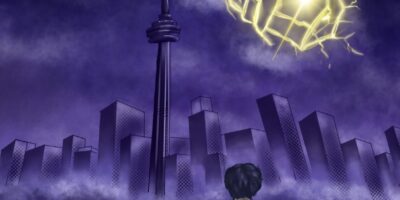The old tale behind World War One is familiar enough; some Austrian archduke was shot by a Serbian and consequently the nations of Europe went to war. The war ended on the eleventh of November, now known as Remembrance Day, and on the whole some very pretty poems and flowers were got from the debacle along with the speedy promise of another war sometime down the line.
The declaration of war caused an upsurge in patriotism in general, but one group particularly gung-ho in support of the war were the suffragettes. War was, in general, good for their cause; the absence of men at home led to an increase in women in the workplace, with all the social and economic power that implied. The British government released all women arrested for suffrage activities and the suffragettes generally ceased their more noisome activities during the war. After the war, the British government gave propertied women over the age of thirty the right to vote.
One of the most persistent images of World War One is that of the white feather; women would hand them to healthy looking young lads who objected to being shot in Flanders’ Fields, as a mark of shame and cowardice. The movement began in Britain, under the auspices of Admiral Charles Fitzgerald and turned into something of a fiasco, not least due to the habit of overzealous women of handing out feathers to essential public servants, discharged veterans, and soldiers on leave. In one instance, a woman attempted to give white feathers to a seaman who was on his way to receive the Victoria Cross.
In general, the white feather movement was unpopular because of its indiscriminate shaming, not because it was considered in bad taste to shame men for a sense of self-preservation. The majority of the anti-war sentiment came from the far left, not because they had any particularly strong opposition to shooting people, but because they objected to shooting people at the behest of what they perceived as a capitalist, bourgeoisie elite.
Most famously, the Bolsheviks made “Land, Bread, and Peace” their slogan during the revolution in Russia, and then spent the next five years fighting in a civil war in Russia. In other countries, the socialists and anarchists mostly contented themselves with striking, marching, and getting arrested. Quebec nationalists and British colonies also generally opposed the war, or at least conscription. Like the far-left, they had no scruples with violence in general, but strenuously objected to dying on behalf of someone else’s problem. Attempts to introduce conscription into Quebec prompted a riot, and British recruitment of locals in Nyasaland (now Malawi) was one of the major contributing factors to the Chilembwe Uprising.
Other sources of opposition to the war came from more familiar sources; churches and avowed pacifists. The League of Nations Society was formed in 1915 in Britain to negotiate an end to the war; it did nothing in that respect, but it was eventually merged with the League of Free Nations Association to form the League of Nations, whereupon it did nothing in any respect. World War One took place within the context of the turmoil and agitation of the early twentieth century, and the emergency measured necessitated by war often exacerbated pre-existing social tensions. Let us remember not only those who fought and died in the war but those who, for whatever reason and however ineffectually, tried to bring an end to it.




Leave a Reply